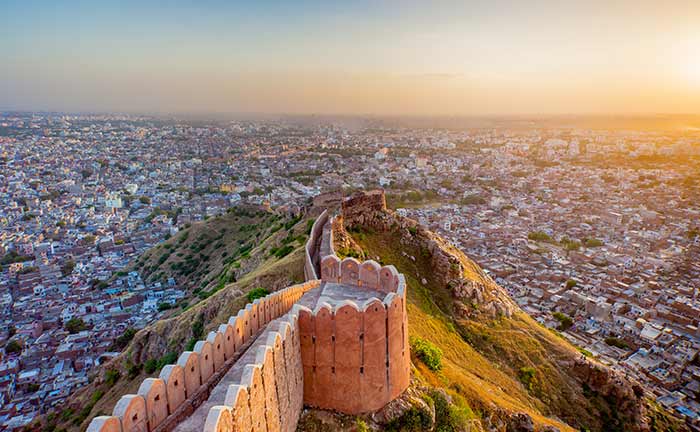
India Travel
Travel has long been a defining aspect of human civilization. From ancient explorers venturing into uncharted territories to modern tourists seeking relaxation or cultural enrichment, the desire to move beyond one’s familiar surroundings is deeply ingrained in human nature. Travel serves multiple purposes: it educates, rejuvenates, broadens perspectives, and fosters personal growth. Whether it is a short trip to a nearby town or a journey to an exotic land, traveling offers invaluable experiences that shape individuals and societies alike.
The Educational Value of Travel
One of the most significant benefits of travel is its ability to educate. While books, documentaries, and digital media provide glimpses into different cultures and historical events, nothing compares to experiencing them firsthand. Visiting historical landmarks, museums, and ancient ruins allows travelers to connect with history in a profound way. Walking through the Colosseum in Rome, standing before the pyramids of Egypt, or exploring the remains of Machu Picchu enables individuals to witness the grandeur of past civilizations.
Moreover, travel facilitates cultural exchange. Engaging with locals, tasting authentic cuisine, and observing traditional practices help individuals develop a deeper understanding and appreciation of different ways of life. This exposure fosters open-mindedness and dispels stereotypes, promoting global unity and mutual respect. Travelers also acquire new languages, even if only in basic phrases, which enhances their communication skills and appreciation of linguistic diversity.
Personal Growth and Self-Discovery
Travel is not just about exploring new places; it is also a journey of self-discovery. Stepping out of one’s comfort zone and navigating unfamiliar environments builds resilience, adaptability, and problem-solving skills. Unexpected challenges—such as missed flights, language barriers, or unfamiliar customs—teach travelers patience and resourcefulness.
Solo travel, in particular, is an enlightening experience. Without the safety net of familiar faces, individuals must rely on their own instincts and decision-making abilities. This fosters independence and confidence. Traveling alone also offers opportunities for introspection, allowing individuals to reflect on their goals, priorities, and personal values. Many people return from their travels with a clearer sense of purpose and renewed motivation to pursue their dreams.
The Role of Travel in Mental and Physical Well-Being
Travel serves as a powerful antidote to stress and monotony. Escaping daily routines and immersing oneself in a new environment can be incredibly refreshing. Natural landscapes, in particular, have a calming effect on the mind. The serenity of mountains, the vastness of the ocean, or the tranquility of a forest provides a much-needed break from the hustle and bustle of urban life.
Scientific studies have shown that travel has mental health benefits. Exploring new places stimulates the brain, enhancing creativity and reducing anxiety. Exposure to different cultures and lifestyles broadens one’s perspective, helping individuals reevaluate their own problems in a new light. Additionally, engaging in physical activities such as hiking, swimming, or cycling while traveling contributes to overall well-being.
The Economic and Social Impact of Travel
Travel and tourism are major contributors to the global economy. They create employment opportunities in various sectors, including hospitality, transportation, and local crafts. Many regions rely on tourism as a primary source of income, and responsible travelers can make a positive impact by supporting local businesses and sustainable practices.
However, travel must be approached responsibly. Overtourism—where popular destinations become overcrowded—can lead to environmental degradation and loss of cultural authenticity. To counteract this, travelers should practice eco-friendly habits such as reducing waste, respecting wildlife, and choosing sustainable accommodations. Ethical tourism ensures that future generations can continue to enjoy the beauty and cultural richness of the world.
Travel and Human Connections
One of the most beautiful aspects of travel is the connections it fosters. Meeting people from different backgrounds, sharing stories, and forming friendships across borders create lasting memories. These interactions break down cultural barriers and remind individuals of the shared humanity that binds us all.
In many cases, travel leads to unexpected acts of kindness. Whether it is a stranger offering directions, a local inviting a traveler to share a meal, or a fellow tourist becoming a lifelong friend, these experiences restore faith in human generosity. Travel reminds people that despite differences in language, customs, and traditions, kindness is universal.
Travel in the Digital Age
The way people travel has evolved significantly with technological advancements. The internet provides access to endless travel information, making planning easier than ever. Online platforms allow travelers to book flights, accommodations, and experiences within minutes. Navigation apps eliminate the fear of getting lost, and translation apps bridge language gaps.
Social media has also transformed travel by inspiring people to explore new destinations through photos, blogs, and vlogs. However, the digital age has also brought challenges. The desire to capture the perfect photo for social media sometimes overshadows the true essence of travel—immersion and experience. Travelers should strike a balance between documenting their journeys and truly living in the moment.
Conclusion
Travel is more than just a leisure activity; it is a transformative experience that enriches the mind, body, and soul. It educates, fosters personal growth, enhances well-being, and strengthens human connections. Whether through exploring new cultures, facing unexpected challenges, or simply enjoying the beauty of nature, travel shapes individuals in profound ways. However, as the world becomes more interconnected, it is crucial to approach travel responsibly, ensuring that its benefits extend not just to travelers but also to the communities and environments they visit. Ultimately, travel is a reminder that the world is vast, diverse, and filled with endless opportunities for discovery.
By: SHIJO GEORGE
Write and Win: Participate in Creative writing Contest & International Essay Contest and win fabulous prizes.


